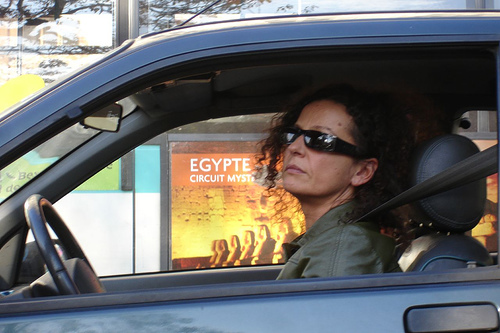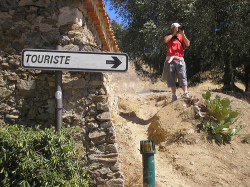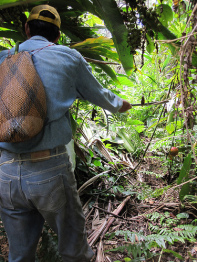With the holiday time approaching, one thing is sure; the French have a different idea of travel to the rest of us. It’s deeply engrained in their culture and of course in the language. Here are a few examples to show you what I mean.
Let’s start with the verb CONDUIRE to drive. In French conduire is used to describe how you drive the vehicle…but never where you’re driving to, you can’t use conduire to say that you drove to Paris or drove home. When you conduisez in French, there are movements but you don’t actually go anywhere. So what is the point of “conduire” if you can’t go anywhere with it?

Well, you can use it to say that you avez conduit toute la journée / vite/ bien /sans permis / en chemisette drove all day / drove fast / drove well / drove without a licence or wearing a short-sleeved shirt but without ever saying where you were going….
You can also aimer conduire like driving and boy, do the French like driving, they just can’t wait to get behind the wheel! 90% of French people take their holidays in France and get where they’re going by car.
By the way, did you know that Duchess Anne de Crussol d’Uzès was the first French woman to get a driving licence on 23rd of April 1889 ? The intrepid duchess was fined 5 Francs for speeding when was caught doing 40 Km per hour in Place St Augustin in Paris, 20 Kms over the limit.
So let’s continue with the verb VOYAGER to travel, which can’t be used with a destination either. Once a Frenchman has arrived at his holiday destination, he may go  out and about to visit the surrounding area in which case he will say that il va se balader and when he gets home he will boast d’avoir vu du pays of having seen the world!!
out and about to visit the surrounding area in which case he will say that il va se balader and when he gets home he will boast d’avoir vu du pays of having seen the world!!
We must not get confused, VOYAGER is something special, it brings a certain kudos. We’re not talking day trips here! When a Frenchman voyage, he goes far from home and is away for a long period, at least huit jours eight days (the very French version of a week). And our Frenchman knows the difference between un touriste a tourist and un voyageur traveller. The former has his trip organized for him and follows sheep-like along the well-trodden tourist trails past the incortounables unmissable sights, while the latter is a solitary adventurer clearing his path with a machete, a thrill-seeker who knows where he’s going…which is just as well because you can’t attach a destination to the verb

voyager!!
Let’s finish our linguistic trip with the verb VOLER to fly; the French aren’t great travellers (only 10% ever visit a foreign country) and as for voler, well it’s for the birds, and like conduire and voyager you can’t stick a town or a country after it….
To conclude, if you want to say that you’re heading for a precise destination, you can just use ALLER to go, and you’ll get there!!
This article was written by Wendy Wise in conjunction with Anne-Marie LEQUEUX: Wendy runs www.facilitutors.com – the one stop shop for all sorts of courses in France, art, craft, languages, literacy and more and Ann-Marie LEQUEUX runs ILFU language school in Uzès http://www.uzes-french-school.com/ where she teaches French both to locals and anyone anywhere via Skype.
….